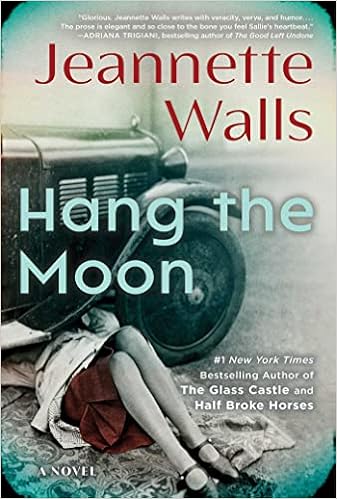3.5 Stars
This novel is set in the 1920s, the Prohibition Era, in East Appalachia, Virginia. The protagonist is Sallie Kincaid who is born into a life of privilege as the daughter of Duke Kincaid, the wealthiest and most powerful man in Claiborne County. After the death of Sallie’s mother, Duke remarries and they have a son Eddie. After Sallie endangers Eddie in one of her escapades, she is sent to live with an aunt for nine years. When she is allowed to return to the Big House, she insists on becoming involved in the Duke’s enterprises, the most profitable of which is bootlegging. She also discovers many family secrets and scandals.
Readers who like strong female characters will like Sallie. She is intelligent, resourceful, and determined. She is also feisty and fearless, always pushing back on the limitations set because she is a woman. She is not interested in marriage because she thinks it would restrict her. What she does want is the approval of her father; she believes “Duke hung the moon and scattered the stars” and knows her father is impressed by “people who are fastest, strongest, first – and that’s what I’m going to be.” Sallie has some of the Duke’s traits; a friend tells her that sometimes she is exactly like her father but adds, “’It’s not a compliment.’”
Duke is the most influential character in Sallie’s life, but it’s obvious that she ignores or is willfully blind to his faults. She sees a charismatic man who rules the county’s economy and politics. Duke warns his daughter that his position requires him to be “’calculating, devious, treacherous, cruel, a real hard-ass, and, when it’s necessary, truly cold-blooded,’” yet it takes a while for Sallie to see her father for the man he really is. In this way, the novel is really Sallie’s coming-of-age story.
Men do not fare well in the book. Except for a father and his son, men prove to be untrustworthy and undependable. Since Duke is modeled on King Henry VIII, though with fewer wives, some of his behaviour is expected, but it seems that almost every woman is wronged by a man. Even the most religious man proves faithless. There are several illegitimate, unacknowledged children.
The book examines the concept of family. The Kincaids emphasize who does and does not belong, based on whether a person carries Kincaid blood. There’s a family home, a family business, and family jewels. Sallie, however, gradually realizes that her family has secrets which cannot be discussed. For instance, she is told by her father, “’If you want to be a part of this family, you will never again mention your mother.’” There are also people who have Kincaid genes but are not accepted for some reason. She concludes, “There are two kinds of family, those you’re born into and those you put together from pieces that don’t go anywhere else.”
The novel’s examination of Prohibition is interesting. Sallie understands that she is engaging in illegal activity: “I don’t for one second forget that what we are doing is illegal, but legal and illegal and right and wrong don’t always line up. Ask a former slave. . . . Sometimes the so-called law is nothing but the haves telling the have-nots to stay in their place.” For the most part, lawmakers are described as “boneheads in Washington” and a “bunch of numbskulls in Richmond and Washington” who don’t understand rural poverty. Sallie sees people struggling to survive and she believes she is helping people “who through no fault of their own are in an awful bind. Obey the law and starve. Or break the law and eat.”
At times the book reads like a soap opera. There’s a large cast of characters who appear and then disappear in some dramatic way. The disagreements between family factions, a long-standing feud with another family, and sexual dalliances are often elements in soap operas. Some of the events feel over-the-top, though in the Acknowledgements, the author states that they are inspired by actual incidents.
The book is entertaining, and I definitely enjoyed noting all the parallels with the Tudor dynasty. However, it just didn’t engage me the same way that the author’s previous books did. Parts of it border on melodrama.
Note: I received a digital galley from the publisher via NetGalley.

No comments:
Post a Comment